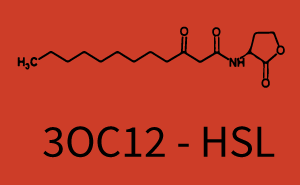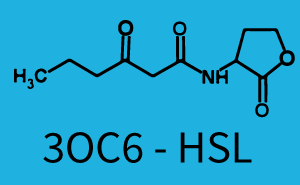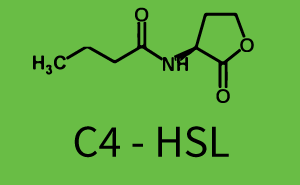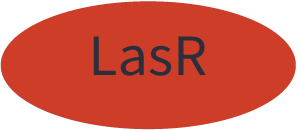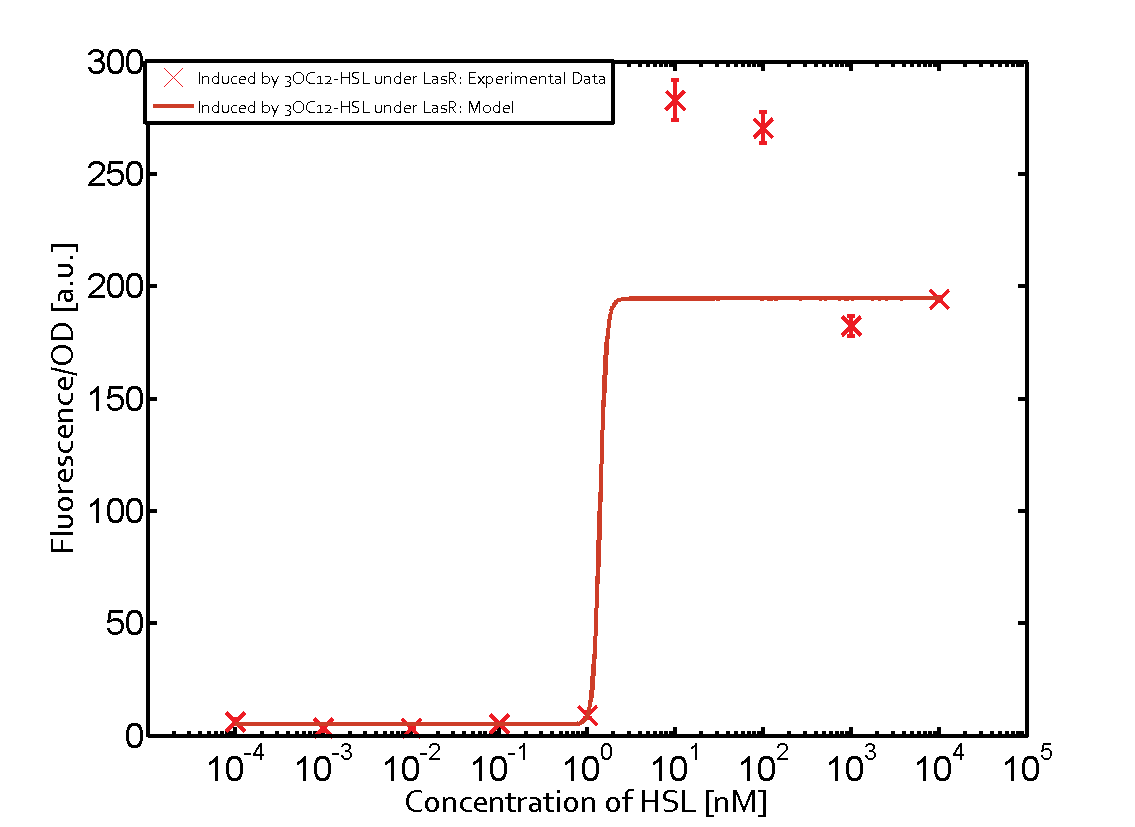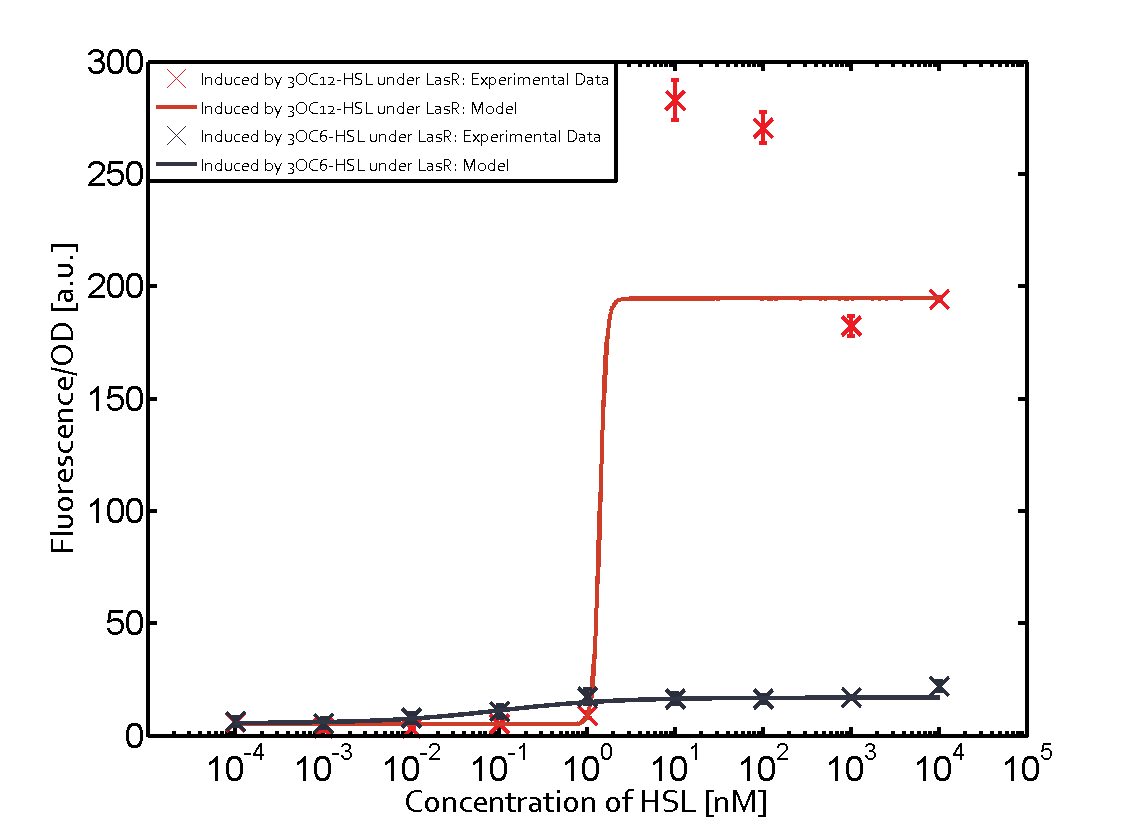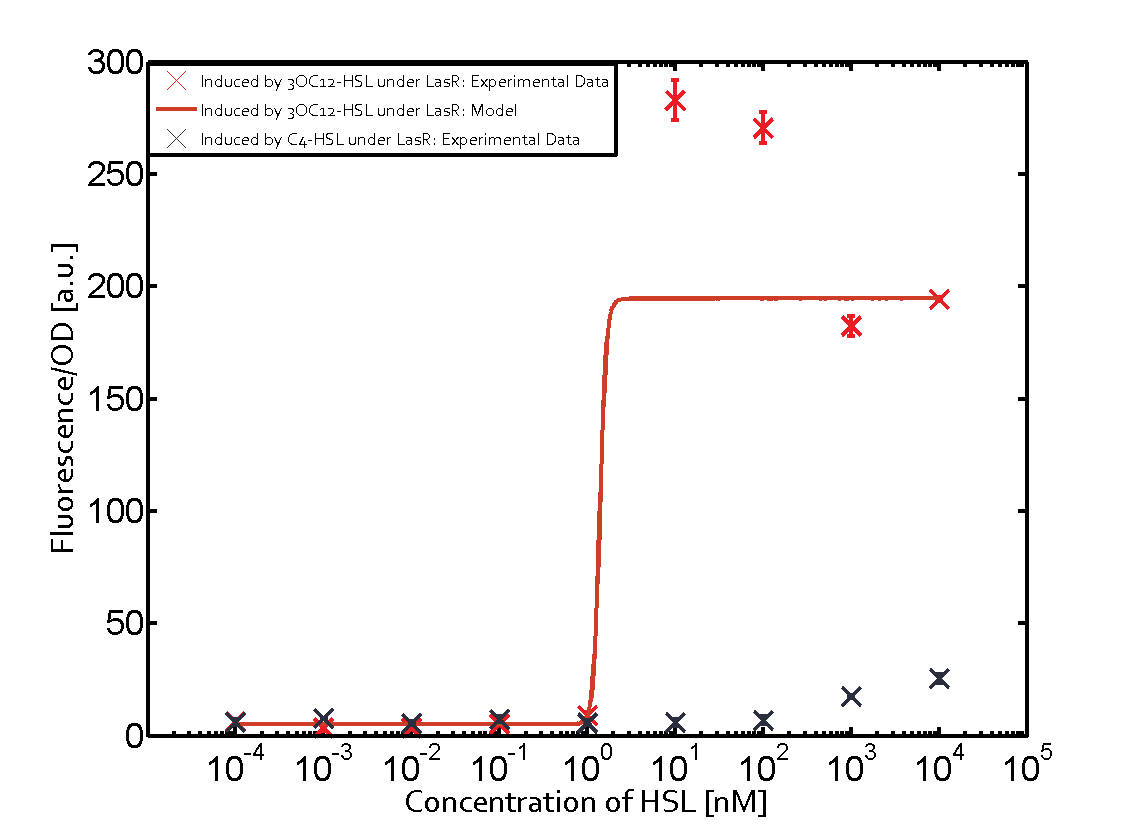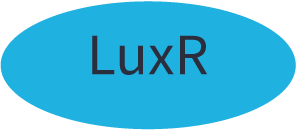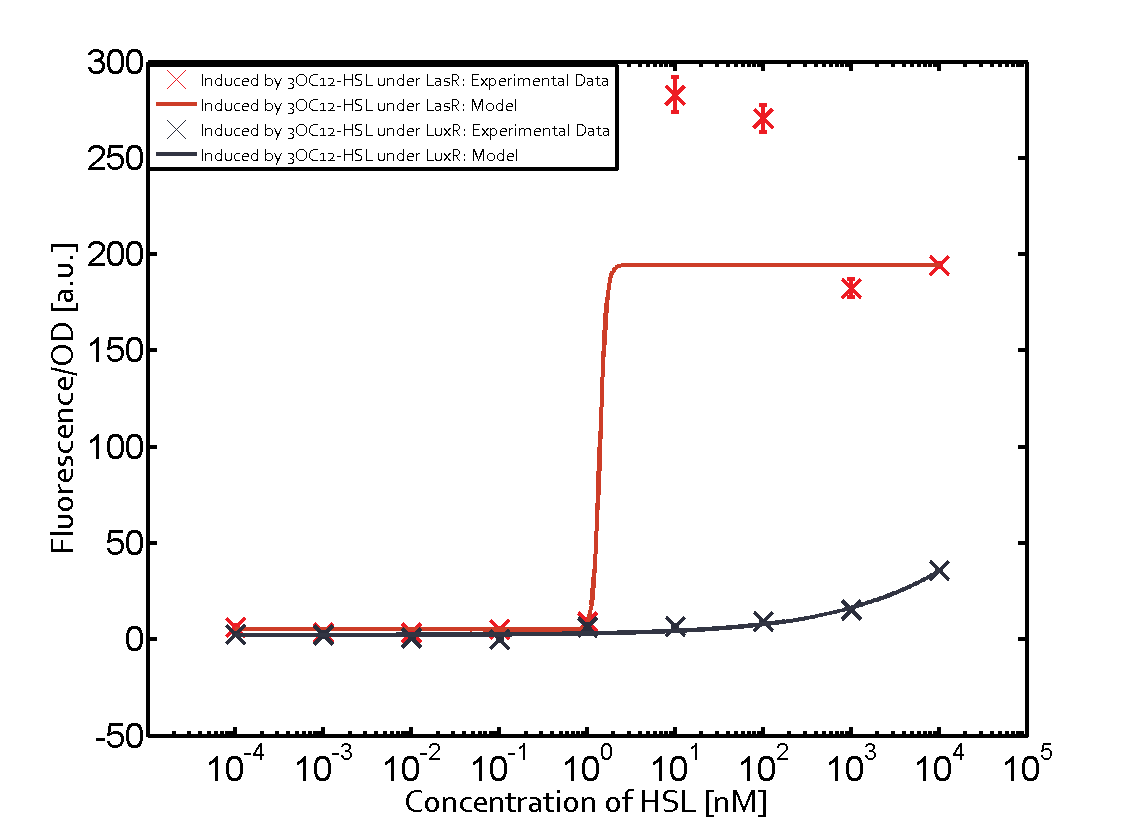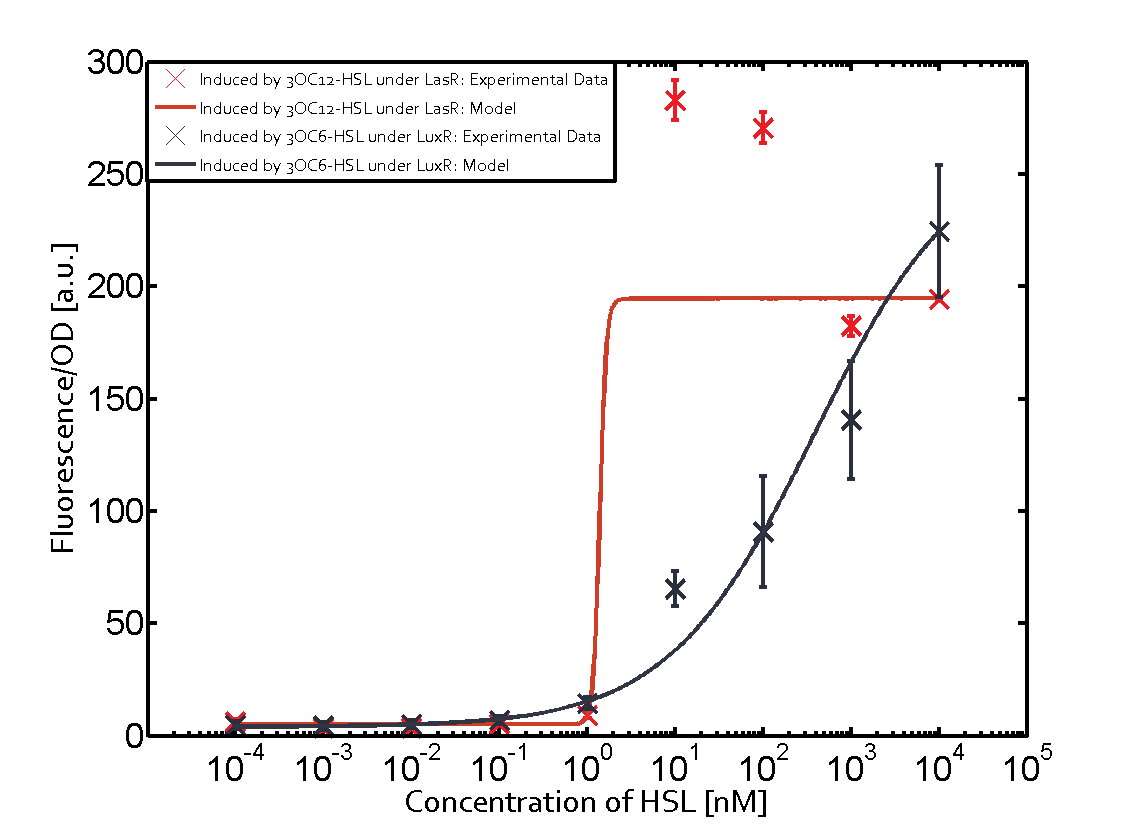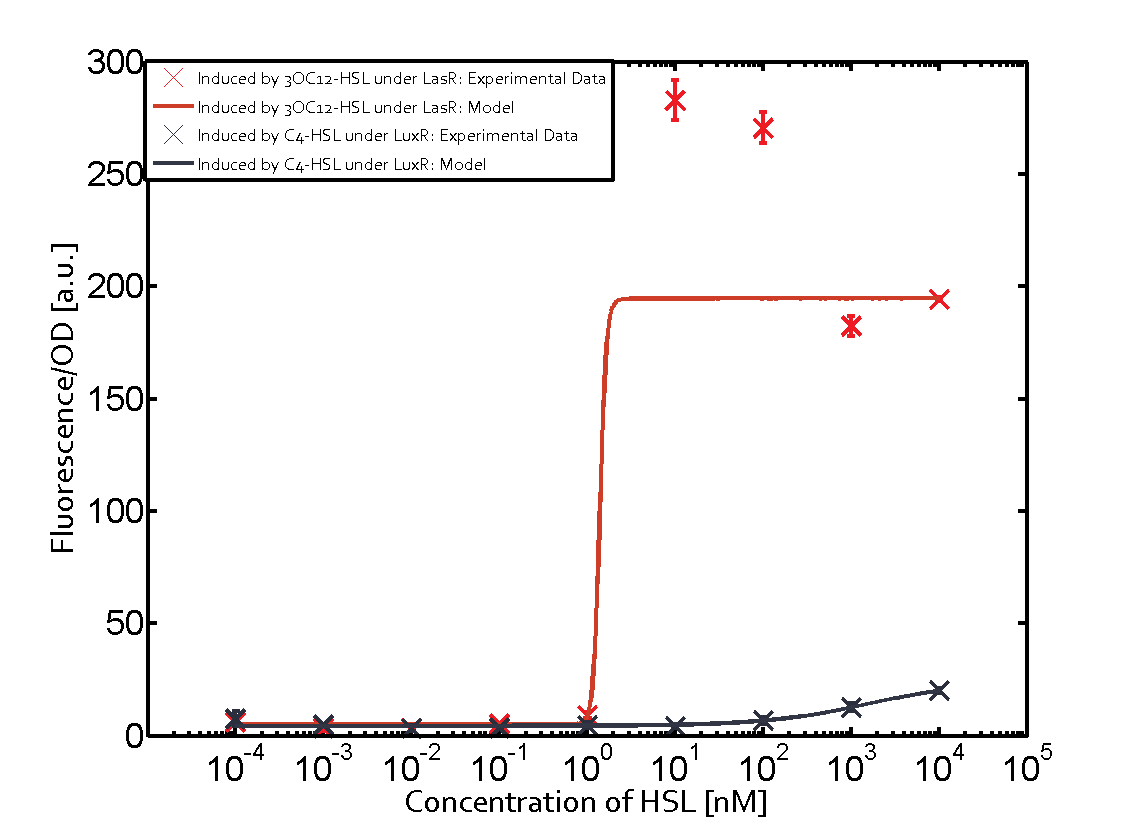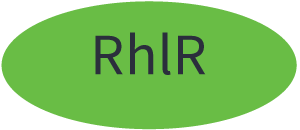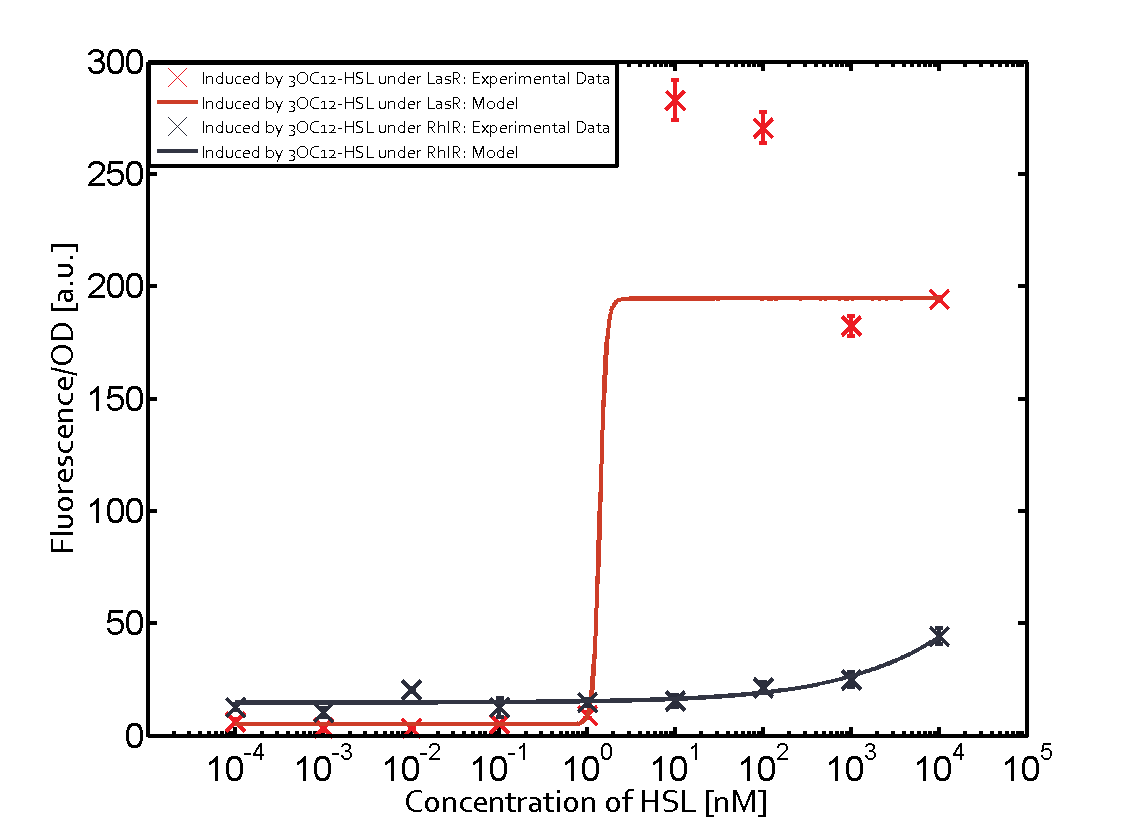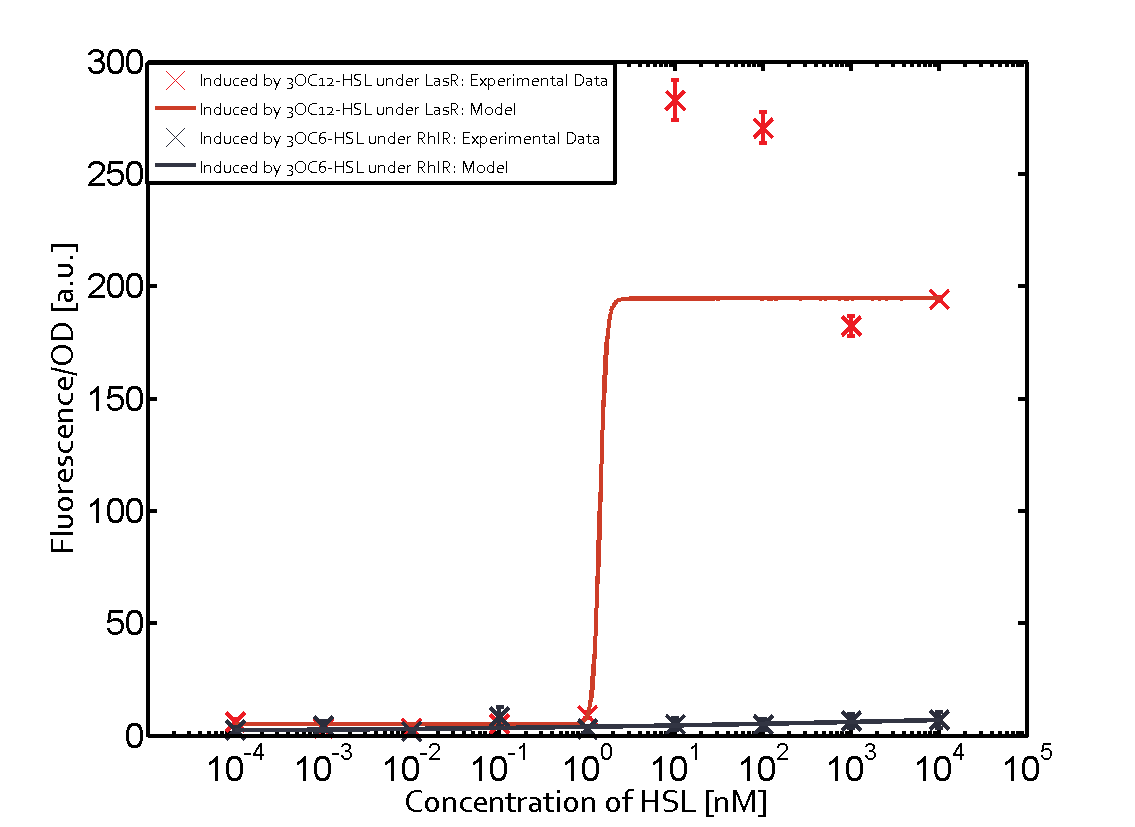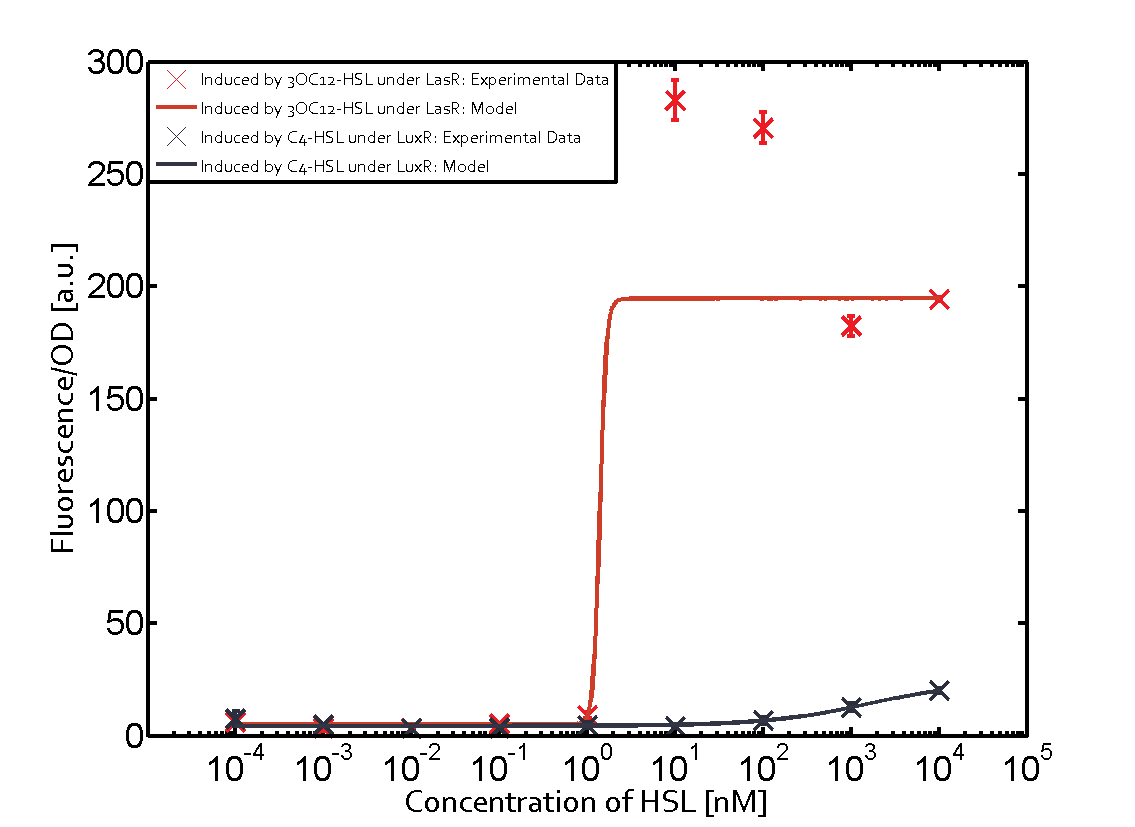Team:ETH Zurich/expresults/qs/tab-plas
From 2014.igem.org
(Difference between revisions)
| (9 intermediate revisions not shown) | |||
| Line 1: | Line 1: | ||
{|class="wikitable" style="background-color: white; text-align:center; width:auto; margin: auto;" | {|class="wikitable" style="background-color: white; text-align:center; width:auto; margin: auto;" | ||
|+'''Table 2''' Crosstalk matrix for the promoter plas ([http://parts.igem.org/Part:BBa_R0079:Experience BBa_R0079]) | |+'''Table 2''' Crosstalk matrix for the promoter plas ([http://parts.igem.org/Part:BBa_R0079:Experience BBa_R0079]) | ||
| - | |style="width:200px"|[[File:ETH_Zurich_2014_qs- | + | |
| + | |colspan="4" style='font-size:10pt';text-align:left| | ||
| + | The promoter of interest in this matrix is [http://parts.igem.org/Part:BBa_R0079 pLas]. The graph on top left corner shows the induction of [http://parts.igem.org/Part:BBa_R0079 pLas] by its corresponding inducer (3OC12-HSL) binding the corresponding [http://parts.igem.org/Part:BBa_C0179 LasR]. The red line shows the model whereas the datapoints shown in red represent the experimental results. The transition can be observed at a concentration of Las-AHL of about 2 nM. 3OC6-HSL binding [http://parts.igem.org/Part:BBa_C0171 RhlR] does not induce the [http://parts.igem.org/Part:BBa_R0079 pLas]. For the binding of 3OC12-HSL to [http://parts.igem.org/Part:BBa_C0171 RhlR] a minor increase of fluorescence can be observed. The same can be observed for 3OC12-HSL binding to the [http://parts.igem.org/Part:BBa_C0062 LuxR] as this combination is to a small degree inducing [http://parts.igem.org/Part:BBa_R0079 pLas]. The most significant case of crosstalk when observing [http://parts.igem.org/Part:BBa_R0079 pLas] is shown in the graph in the center of the matrix. It is clearly shown that 3OC6-HSL (Lux-AHL) binding to the corresponding [http://parts.igem.org/Part:BBa_C0062 LuxR] regulator is able to induce [http://parts.igem.org/Part:BBa_R0079 pLas], resulting in fluorescence values of about 250 a.u.. This is the most severe case of crosstalk observed as the induction of [http://parts.igem.org/Part:BBa_R0079 pLas] by the corresponding inducer and regulator molecule is not significantly different measured by fluorescence as induction by Lux-AHL binding the [http://parts.igem.org/Part:BBa_C0062 LuxR] and subsequently [http://parts.igem.org/Part:BBa_R0079 pLas]. | ||
| + | For C4-HSL binding the three regulators [http://parts.igem.org/Part:BBa_C0179 LasR], [http://parts.igem.org/Part:BBa_C0062 LuxR] and [http://parts.igem.org/Part:BBa_C0171 RhlR] and then the [http://parts.igem.org/Part:BBa_R0079 pLas] no crosstalk can be observed. | ||
| + | |- | ||
| + | |||
| + | |style="width:200px"|[[File:ETH_Zurich_2014_qs-table_CornerLas.png|200px|link=http://parts.igem.org/Part:BBa_C0079:Experience]] | ||
|[[File:ETH_Zurich_2014_qs-table_3OC12-HSL.png|200px|link=http://parts.igem.org/Part:BBa_C0079:Experience]] | |[[File:ETH_Zurich_2014_qs-table_3OC12-HSL.png|200px|link=http://parts.igem.org/Part:BBa_C0079:Experience]] | ||
|[[File:ETH_Zurich_2014_qs-table_3OC6-HSL.png|200px|link=http://parts.igem.org/Part:BBa_C0079:Experience]] | |[[File:ETH_Zurich_2014_qs-table_3OC6-HSL.png|200px|link=http://parts.igem.org/Part:BBa_C0079:Experience]] | ||
 "
"

